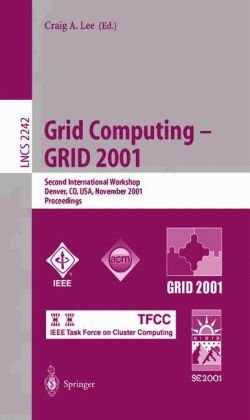

Most ebook files are in PDF format, so you can easily read them using various software such as Foxit Reader or directly on the Google Chrome browser.
Some ebook files are released by publishers in other formats such as .awz, .mobi, .epub, .fb2, etc. You may need to install specific software to read these formats on mobile/PC, such as Calibre.
Please read the tutorial at this link: https://ebookbell.com/faq
We offer FREE conversion to the popular formats you request; however, this may take some time. Therefore, right after payment, please email us, and we will try to provide the service as quickly as possible.
For some exceptional file formats or broken links (if any), please refrain from opening any disputes. Instead, email us first, and we will try to assist within a maximum of 6 hours.
EbookBell Team

4.1
40 reviewsThe term "grid computing" is based on an analogy with the electrical power grid: computing capabilities should be ubiquitous and easy to use. While the development of what we now call grid computing is, in many ways, part of a natural progression of work done in the last decade, what's special about it is that all of its enabling technologies are converging at once: (1) a widely - ployed, network infrastructure will connect virtually every device in the world, (2) an interface technology is widely understood and embraced by virtually every segment of science, technology, commerce, and society, and (3) there is a wi- spread, and growing, understanding of the properties, capabilities, and services that are necessary and possible to utilize this infrastructure. Information services and resource brokers will allow the dynamic sharing of resources for applications large and small and enable virtual organizations. These properties, capabilities, and services will be used in different contexts to enable different styles of c- puting such as Internet computing and Peer-to-Peer computing. To facilitate the adoption of standard practices, the Global Grid Forum (www. gridforum. org) was formed to identify common requirements and push for eventual standardization. The phenomenal growth of grid computing and related topics has created the need for this workshop as a venue to present the latest research. This year's workshop builds on the success of last year's.